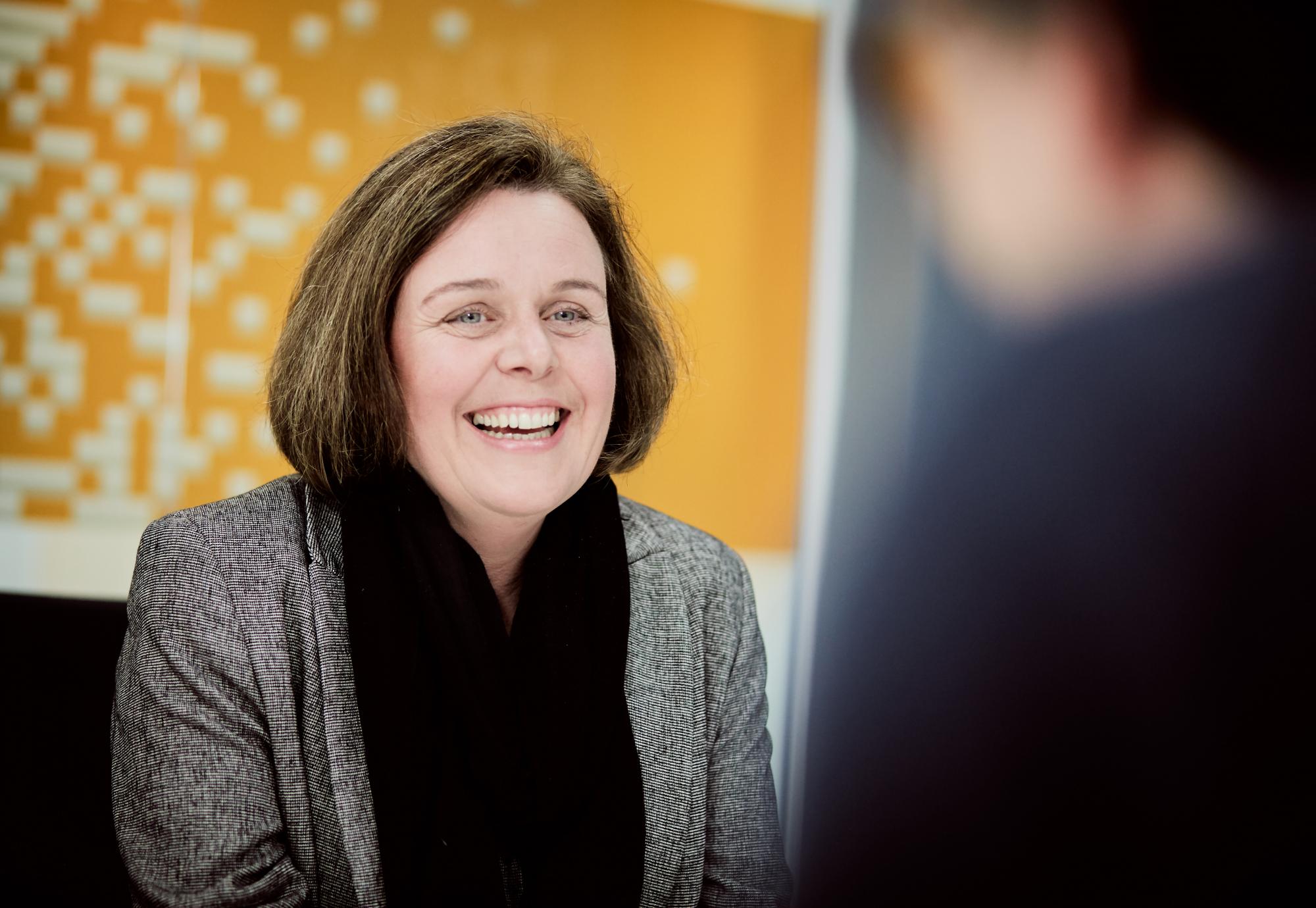As an ardent supporter of Welsh rugby, Michelle Wall, the Director of Finance at Companies House knows a thing or two about making the most out of relatively limited resources.
For longer than it cares to remember, the Wales national team has often outshone its rivals on the international stage, despite having a relatively small playing pool to select from.
In England, rugby union is played the length and breadth of the country from Cornwall to Northumberland.
In Wales, its traditional heartland spans about a 70 mile stretch of the M4 motorway between Newport and Llanelli.
For Wales in a rugby union setting, see Companies House in a governmental one.
“I think we are an organisation that punches above its weight in many respects,” says Michelle who, besides being Director of Finance at Companies House, is also married to an ex-rugby union player and has three rugby union playing sons.
“For relatively small amounts of money, in the context of government, investments in us can deliver good value. Recent research into the value of our register identified that it is worth between £1bn and £3bn to the UK economy.
“If Companies House can increase the register’s value by just 5%, then that’s an annual increase to the economy of £150m,” she adds.
If ever there was a time to contemplate the true value of Michelle’s employer to the UK economy, then it’s probably now.
For the best part of 200 years, Companies House has acted as the formal register of all companies in the UK, but what exactly does that mean?
In short, Companies House makes the information contained on that register available to a wide range of users, including companies, investors, researchers, credit reference agencies and government departments, as well as the general public.
Those users can then make important decisions based on that information, including ones that drive economic growth.
Last year, Companies House had 9.8 billion searches on its register, which contains the details of 4.4 million companies registered in the UK.
Despite operating under challenging circumstances, customer satisfaction rates remained high.
Crucially, the all-important Companies House register remained up-to-date throughout the Covid-19 pandemic, informing all manner of important governmental, business and banking decisions.
It has been estimated that Companies House data supports £1.7tn of investment decisions annually.
Legislative reform is also in the pipeline, which will reshape the framework in which Companies House operates, further increasing the value of the register by supporting the fight against economic crime, such as fraud, bribery, corruption, money laundering and the financing of terrorism.
In short, the consequences for the economy of that register not being kept up-to-date do not bear thinking about.
Companies House simply had to remain open during the pandemic, albeit with significant remote working, and it did so, but the fact that it did was far from accidental.
Over the past three years, the organisation, which has its headquarters in Cardiff, has been on what Michelle refers to as “a transformation journey”, channelling time, effort and resources into changing not only its culture, but the way it functions behind the scenes.
That journey made a huge difference during the pandemic, enabling Companies House to have the majority of its staff working from home within a matter of days of the first lockdown being declared and it will continue to make a huge difference in the future.
“I joined Companies House in March 2018 having spent 10 years in a variety of roles at the Intellectual Property Office,” says Michelle, a qualified accountant with a management science degree from Swansea University.
“Straight away, I felt the way my team were operating was a little old fashioned. We didn’t have business partners. We had accountants in the back office. We didn’t have the kind of connectivity with the rest of Companies House that I wanted.
“A lot of our activity was also quite backward looking, reporting after the event. We needed to be collaborating with the organisation, adding insight to the conversations, decision-making and being a trusted advisor.
“We have made some huge improvements. We’re keen to understand what we’ve spent. I always will be, I am an accountant after all.
“However, the focus of our conversations with our business partners is the future. It’s about planning and forecasting. It’s about transformation. It’s about where we are going to end up and how we get there.”
Alongside the Covid-19 pandemic and the impending economic crime legislative reform, Companies House also recently changed its status to an executive agency within the Department for Business, Energy and Industrial Strategy (BEIS).
This has resulted in a much closer financial and reporting relationship between Companies House and BEIS.
“For me, our operating model and team structure wasn’t quite right anyway, even allowing for the changes that were happening regarding BEIS,” adds Michelle.
“We were not set up to deliver the forward-looking vision that I had and we didn’t have the resources and time for new activity, such as comprehensive spending reviews and building business cases for the transformation.
“And so we restructured. In June 2020, we introduced a Strategic Finance Team to look at all things future, as I call it. They engage with the business, they look at the forecasts, they look at investment decisions, they look at fees and funding.
“They go and work with other organisations to understand what they’re doing and to see whether there are any opportunities for us to do things collaboratively.
“They look outwards, which is what we weren’t doing enough of and they will make a massive change to the way that Companies House works in terms of driving public value. In fact they are already.
“One of the things that I did find when I came to Companies House was that we had a very good understanding of efficiency around the organisation. We had a good history of hitting our efficiency targets year after year. We just needed to broaden that picture.
“It’s not only about efficiency. It’s also about value. If you talk about efficiency all the time, you can get to a point when it’s all about cost-cutting and that’s not quite what I want to see.
“What I want to see are good decisions being made that do things as cost-effectively as possible but deliver value.
“If somebody spends £10 and delivers £100 of value, that wouldn’t give me as much satisfaction as somebody who spends £12 and gives £1,000 of value.
“It’s getting people to think about that trade-off between what we’re spending and what we get back as a consequence. That’s the behaviour that I really want to drive into the organisation.”



















